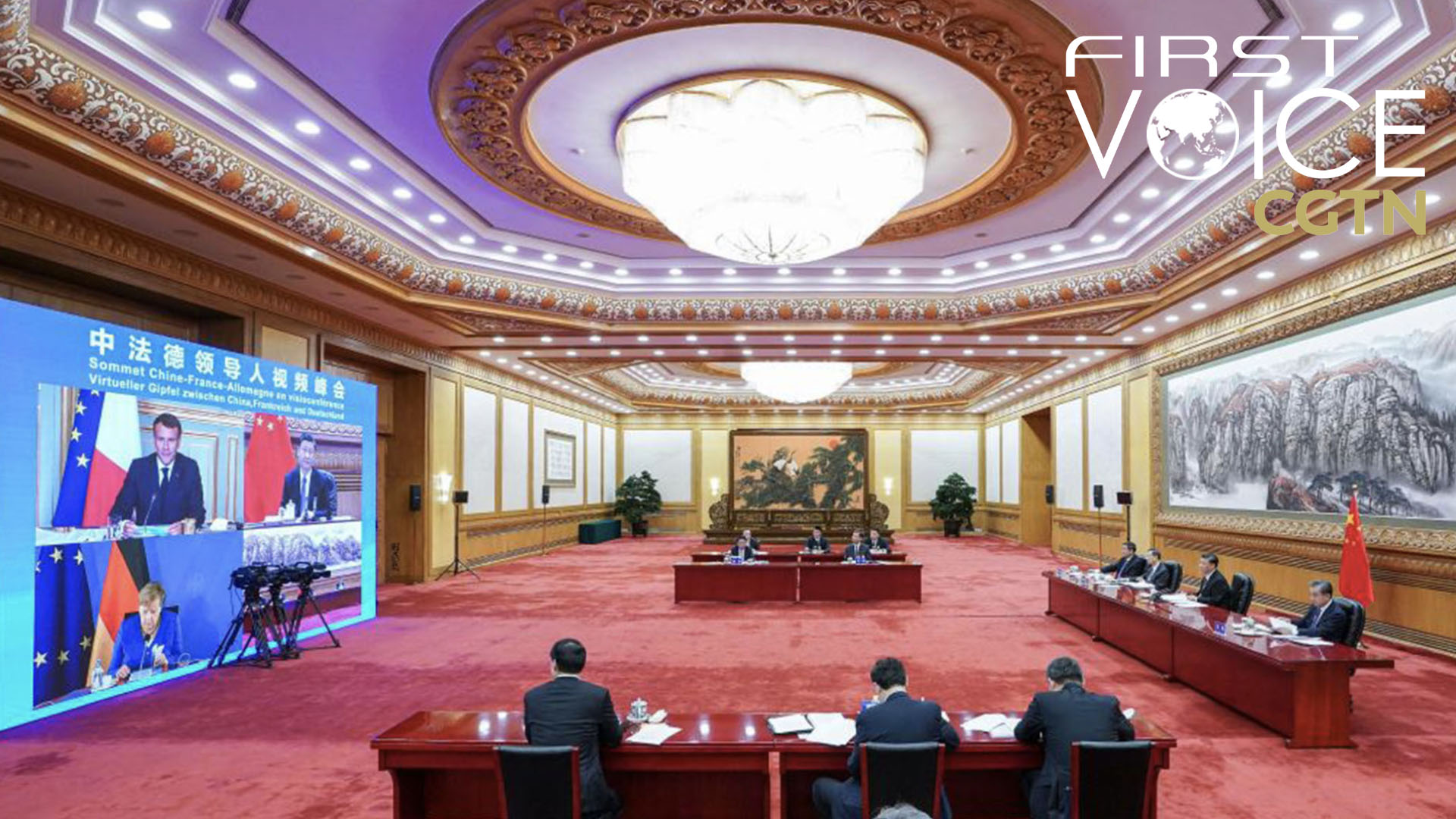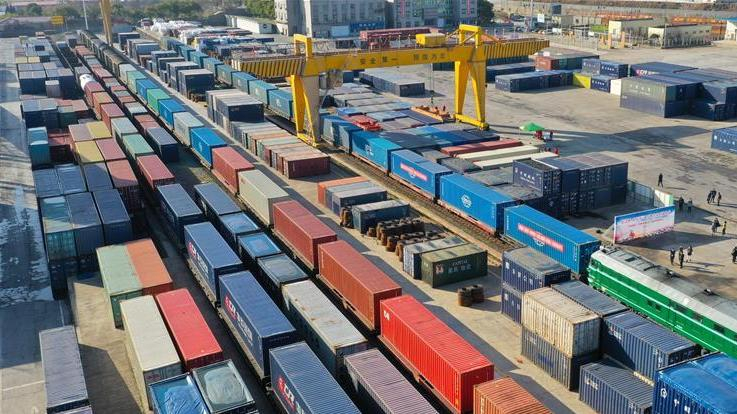
Editor's note: CGTN's First Voice provides instant commentary on breaking stories. The daily column clarifies emerging issues and better defines the news agenda, offering a Chinese perspective on the latest global events.
On July 5, Chinese President Xi Jinping spoke with French President Emmanuel Macron and German Chancellor Angela Merkel via video link for the second time in three months. In the meeting, both sides agreed to sustain multilateral cooperation across a range of areas including COVID-19, aid, trade, business, climate change and cultural and digital matters.
They agreed to advance several agreements, including the China-EU arrangement on geographical indications and the Comprehensive Agreement on Investment (CAI) to expand mutual and reciprocal market access. Xi Jinping stated that the parties "should uphold this spirit, view each other's differences in a correct way, rationally handle divergences, and ensure ties between the two sides move forward."
The summit comes despite a litany of articles in the mainstream media and think tank-induced narratives that have sought to depict a deterioration in China-EU relations, not least as the Biden administration has sought to build anti-China coalitions with European nations. Despite the conflicting positions between China and the EU countries on human rights, the reality remains that China-EU relations are not a zero-sum game and continue to be driven on both sides by principles of diplomacy, multilateralism and engagement.
Europe cannot afford to negate its relationship with China or turn away the benefits of the Chinese market. When the CAI was agreed in principle in 2020, the United States sought to undermine it, demanding a "unified approach amongst allies" as well as pushing a plethora of journalists, activists and think-tankers to oppose it, misleadingly presenting it as a "concession" to Beijing than a win for European businesses.

The China-Europe freight train waiting for departure at Xiangtang railway port in Nanchang, east China's Jiangxi Province, February 17, 2020. /Xinhua
The China-Europe freight train waiting for departure at Xiangtang railway port in Nanchang, east China's Jiangxi Province, February 17, 2020. /Xinhua
Jake Sullivan's tweet set the tone for what was coming, and subsequently Washington sought to use the Xinjiang issue as a wedge to try and undermine the EU's policy of engagement with China and lock them into the obligations of a "value-driven alliance" on human rights, leading to a coordinated sanctions approach in 2021 that invited China's sanctions on EU officials. The EU parliament declared outrage and voted to freeze the agreement; the U.S. hoped it was gone.
However, that was just wishful thinking. The latest summit between Xi, Macron and Merkel illustrates that the hawkish approach Washington aspired for in Brussels is not materializing, and the policy of multilateral engagement continues. Why so? Despite differences, the European Union, as a general rule, does not see competition with China as an absolutist "zero-sum game" in the way the United States does, nor attempts to pour suspicion and disdain on every aspect of the relationship. It has pursued a multifaceted approach that may sometimes invoke differences, but also understands the need to work together on common interests.
China's foreign policy towards the EU is also based on an open and pragmatic approach to the continent and not a confrontational one as many reports have misleadingly said. Cliches such as "wolf warrior diplomacy" dismiss the reality that China continues to engage with Europe and places importance on building the relationship. As a survey from the European Chamber of Commerce as cited by Bloomberg notes "nearly 60% of European companies planning to expand their China operations in 2021, up from 51% last year," adding that "the resilience of China's market provided much-needed shelter for European companies amidst the storm of the COVID-19 pandemic."
Common interests ultimately prevail over differences, and the reality is that China-EU relations remain stable, positive and focused on cooperation, multilateralism and results-orientated diplomacy on both sides. The CAI wouldn't be iced-out given its pivotal position in attaining increased European prosperity and its relationship with the world's largest market. Mature heads will prevail, and the China-EU relationship will continue to prosper and manage its differences accordingly.
(If you want to contribute and have specific expertise, please contact us at opinions@cgtn.com.)

